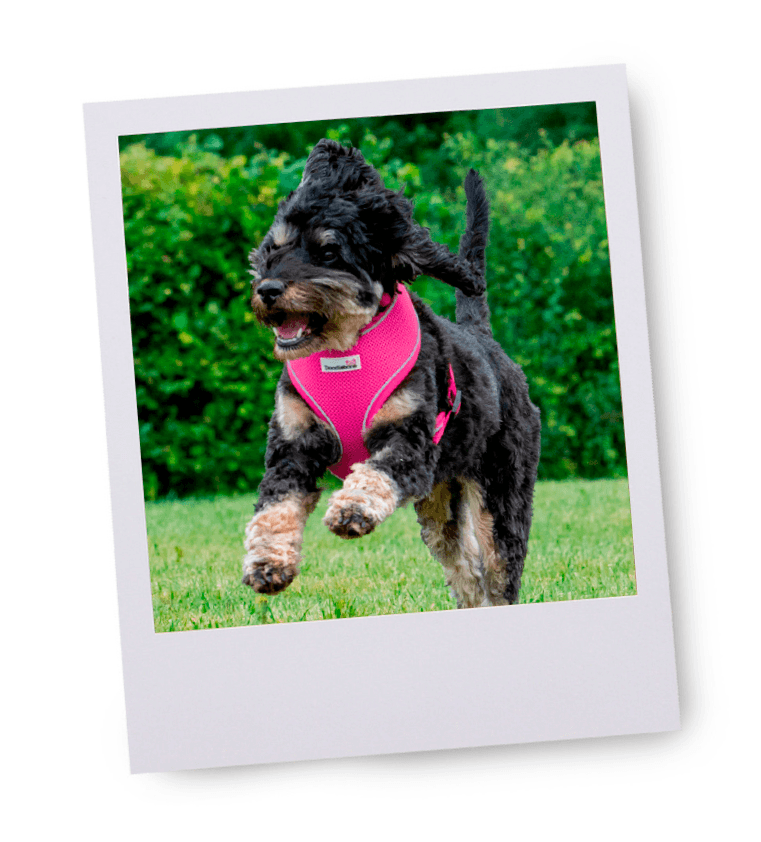





Dog health

Keeping your dog in tip-top condition!
It’s no secret that a healthy dog is a happy dog! They depend on you to look after their health in return for their affections and loyalty!
Every dog breed is different, and will require different diets to keep them healthy. It is still useful to have a basic understanding of the most common health problems your pooch might face, and how to spot and handle them.
Different ages of dogs will also face different health concerns, be it puppy vaccinations, pregnancy or having a dog that’s a tad overweight!
Your dog’s skin and coat health will be maintained through a balanced diet, which will keep them looking healthy and shiny!
The vet
When you go to the vet for a check-up, they will inspect your dog’s ears, eyes and teeth. But it is a good to know the first signs to look for that might signal a concern:
Ear health
Any dog can develop an ear infection, but some breeds are at
a higher risk than others. Cocker Spaniels are more vulnerable because of their heavy, floppy ears and thick hair. Labrador Retrievers love to play in water, meaning bacteria thrives in their ears, making them more susceptible to infection.
Ear infections are, in the best scenario, uncomfortable for your dog. In the worst case, when chronic, can be very painful and lead to vertigo and deafness.
What to keep an eye out for
Your dog will alert you by scratching their ears a lot. You may also notice inflammation, redness, a yeast-like smell or hair loss around the ear.
What to do if you suspect a problem
If you notice any of these symptoms you should take your dog to the vet as soon as possible to relieve your dog of any discomfort. If the ear infection is caused by mites, rather than bacteria, these are easily preventable through flea and tick treatment.
Eye health
Just as with ear infections, whilst all dogs can develop an eye infection, some dogs are more prone than others, particularly those with long hair around their eyes.
Abnormalities in your dog’s eyes could be caused by any number of things such as allergies, foreign bodies or a serious infection.
Teeth health
The older your dog gets, the more susceptible it is to dental issues, as plaque and tartar build up. Prevention is the best policy. As ridiculous as you might think it sounds, brushing your dog’s teeth is a must! It can be fiddly with a wriggly dog, but it’s much less of a pain than a dentist’s bill! You can even buy meat-favoured toothpaste for your dog – it’s a dog’s life! It is VERY important not to use human toothpaste, as most contain fluoride, which is poisonous to dogs. Even though they are more susceptible when they’re older, it’s a good idea to start brushing their teeth from when they’re a puppy, so they get used to the process.
Dog vaccinations
It’s important that you know the required vaccination schedule and what they are protecting against.
Dog vaccinations usually take place when your puppy is 8-12 weeks old, and they may require a booster when they are a year old. Some pets need further protection as they get older and you should speak to your vet about what your dog might need.
Grooming
Grooming your dog is not just cosmetic – it is an essential part of looking after your dog’s health.
It’s important to start puppy grooming early, so they can get used to the process whilst you can keep a close eye on than and spot any health concerns early on.
Your dog’s grooming needs will change as they get older and will vary depending on their breed.
If you choose to bath your dog rather than take it to a professional groomer, there are some things you should know. Just as you shouldn’t use human toothpaste on dogs, nor should you use human shampoo, including baby shampoo. We advise that you brush your dog before you bathe it, so any loose hair doesn’t dry and get matted. It’s also highly recommended to use a hair trap in the bath, so you don’t make a dog’s dinner out of your drains!
Finally, when washing them, be careful of their eyes and ears. Water in your dog’s ears could lead to infection.
As with all health related matters, if in any doubt, contact your vet.





